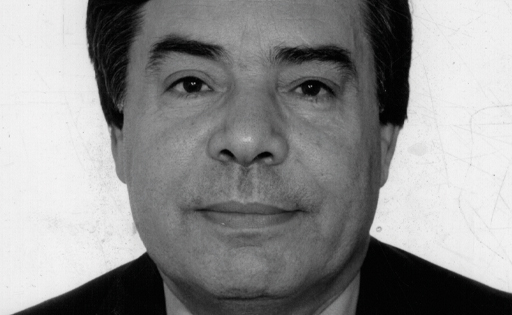Mohamed Lessir

The 25th anniversary of
the Barcelona Process
The partnership established 25 years ago has acquired new significance for the countries of the Mediterranean in a time of increasing threats to the stability of the region. Civil wars, terrorism, external interference, sanctions, and the enduring Israeli-Palestinian conflict are all issues particularly impacting the southern Mediterranean states and alerting us all to the need for a collective response and shared efforts to establishing a peaceful regional order, in line with the principles of our time. There are foreign powers that see the resolution of the Israeli-Palestinian conflict, by confiscating larger parts of the occupied territories and reaching a common understanding, as the foundation for establishing regional order. As power politics dominate the global stage, the state of the Mediterranean is in decline.
What’s more, the global pandemic that has swept across the world is having a particularly devastating impact on the region. After years of war and widespread violence, as well as the indefinite occupation of territories and the disruption of political instability, collective responsibility is needed, starting with the local authorities. There is a call to stem the flow of refugees and welcome them, to strengthen statehood, to tear down the walls of hatred, and redirect the region’s resources to its recovery. How could we face the uncertain aftermath of this pandemic if not by closing ranks?
Is there still faith in the global order that has so far been tasked with ensuring international peace and security? Since December 2017, we have witnessed worrying trends, very similar to those that befell the international order established after the First World War and destroyed the League of Nations. We can see this is a grave threat to world order and commitment to the purposes and principles of the Charter.
As we hope to eradicate the threat entirely, the Euro-Mediterranean remains a pillar of stability. From the outset, we shared a vision of the Euro-Mediterranean partnership and confirmed that the European Union was steadfast; firm in its principles; founded on a deep historical culture; and determined to build something bigger than a market, a common region of peace and prosperity. Three imperatives are now essential: first, a spirit of solidarity in support of the partnership’s strategy and the Neighborhood Policy; second, nurturing complementarities within the region; and third, a shared understanding of peace and security.
The Mediterranean cannot be ignored or sidelined in any post-pandemic economic recovery plan that Europe draws up, in terms of resources, investments, and policies. By relying on its own assets, such as jobs, human resources, and strategic investments, the region will be more integrated, competitive, and secure — and therefore better equipped to handle the potential delocalisation of its local producers and service providers.
The search for peace must be more than a diplomatic ritual, it must be grounded in principles. What kind of peace allows for the acquisition of territory by force? What democracy asserts a regime of discrimination? What security would be achieved by indefinite occupation? Peace is based on equal respect for people, their rights, and obligations. If negotiation is part of the process, this, in turn, requires mutual respect – meaning no intimidation, violence, or state terrorism. We have a duty to share a common idea of peace and security.
As we see it, there are three major priorities that will shape the future of the Euro-Mediterranean.
Peace is the central priority. The Eastern Mediterranean will be able to aspire to peace once a just and lasting settlement of the Israeli-Palestinian conflict is established. The conflict does not have to last forever. This wait-and-see policy is far from being a guarantee of peace and further repression and violations of fundamental rights will not help either.
The European Union was intended to promote democracy, respect for human rights, and the supremacy of these values. To that end, both the European Charter and the Barcelona Declaration constitute a very clear commitment. In Tunisia, the democratic breakthrough was based on the liberalization process kickstarted by the Association Agreement. This momentum paves the way for a nascent process of democratization in southern Mediterranean societies, which must be protected and supported. For an aspiring region that demands democracy, establishing a distinct and defined status in terms of its ‘Democractic Transition’ helps clarify the process and protect against the risk of regression. The status is itself an incentive.
Europe and the Mediterranean share a common destiny. If the countries of the Warsaw Pact have finally endorsed economic and political liberalism and thus unified the European theatre, the Mediterranean partners have, in effect, embarked on the same path. The Tunisian Democratic Revolution has opened the way for a historic achievement, worthy of support in Tunisia and beyond, among all Mediterranean partners because it contributes to the unification of the Euro-Mediterranean region. The failings of a world order could be overcome by establishing a regional order that meets our needs, thanks to the globally strategic centrality of the European pillar and the philosophical foresight of our European partners.
The Mediterranean is set on being the stage for a harmonious relationship between Christianity, Islam, and Judaism. The lights which have shone on the three communities in turn, now illuminate the surest path to reconciliation and a common destiny in today’s Europe.
As partners, we have faith in our common destiny and in the values that underpin our commitment to the purposes and principles of both the United Nations Charter and the Barcelona Declaration.
Original version here.

